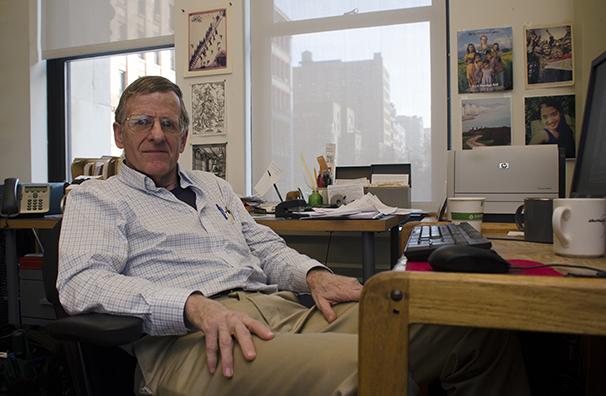
According to the latest statistics released at the end of last week, unemployment in New York City has dropped below 8 percent for the first time since 2009. The rate now stands at 7.8 percent, the result of a long decline over the last few years.
James Brown, the principal economist in the Division of Research & Statistics at the New York State Department of Labor, said the leading cause for the decrease in the unemployment rate is job growth over the past few years.
“Nationally, there was also the factor of a shrinking labor force, but in fact, New York City’s labor force active in the job market has been growing,” Brown said.
The job growth in the city is spread throughout many sectors. Brown said the strongest growth is in health care and home services. Professional and business services — such as lawyers, engineers, accountants, and architects — are also seeing positive job growth.
Politics professor Lawrence Mead said the public needs to be aware of unemployment politics when analyzing recent figures.
“The politics of unemployment causes politicians to view the unemployed as not being able to get a job,” Mead said “Many of these people could easily get jobs, say at McDonalds, but they are being more selective in wages.”
Brown said the latest numbers do not provide information on how college graduates are faring in 2014, but according to recent trends, opportunity is dependent on the field of study of a graduating student. Despite being hit hard by the economic recession of 2008, young graduates are being hired in the computer industry and the public relations field, while graduates breaking into other sectors face a tougher job market.
“One area that is not doing particularly well is the finance sector, which is usually the leader in up-turns,” he said. “So if you’re coming out looking for a finance job, you’re going to find it harder than in some other areas.”
Both Brown and Mead said educated people are more employable, and Mead also said the average NYU graduate is employable.
Poly senior Andy Yeung said he is confident in applying for engineering jobs in the city.
“The Polytechnic School of Engineering did not prepare me to become an engineer to make money in [the] future,” Yeung said. “It provided an environment for me to learn problem solving, allowing me to choose the jobs I want … when I graduate.”
Brown said the decrease in unemployment rates looks promising for the future.
“The rate should continue to drop since the market has been adding jobs at 2 to 2.5 percent rate and the supply of labor is only growing at about 1 percent,” Brown said. “So, unless the national or local economy dramatically U-turns in the next few months, the unemployment rate should continue to trend downward.”
A version of this article appeared in the Wednesday, March 12 print edition. Andrew Spohn is a staff writer. Email him at [email protected].





















































































































































